This post summarizes some Thycotic SS knowledges which considered as advanced level.
Cluster + Load Balacner
Ensuring Client IPs are Passed to Secret Server for Audit Logs
As of Secret Server 10.5, you can manage X-Forwarded-For settings directly through the hidden Advanced configuration URL. This should be set first before finalizing your load balancer configuration. This is the only setting that needs altered on the web application/Secret Server side. It has been observed to be case sensitive, so please enter exactly as seen below. Example URL:
https://srv-us-ss01.pslab.com/SecretServer/ConfigurationAdvanced.aspx
Distributed Engine
Distributed Engines provide scalability for large or distributed organizations
- Leverage Secret Server for Privileged Account Management at remote offices & locations
- Large environments (50k+ endpoints) require more processing power from Secret Server
- Organization wants to manage remote networks (private cloud or DMZ)
Distributed Engine supports:
- Discovery
- Active password rotation (on-demand & scheduled)
- Active Directory Integration
- Heartbeat
- Proxying
Unix Protection
SSH Key management
SS Unix Protection - Allowed Command Menus
• Restrict!ßommands per user or group
- On the Secret or by Policy
• Launched Sessions only have access to the menu
• Format
name = command variables
- Name
The name the user will type to execute the menu option
May not contain white space characters .
- Command
- Command sent through SSH to the remote server
- Must be a command that is accessible by the user
Variables
- Variables that are passed into the command run on the remote server
- Names are to help what is expected.
Secret Server: SSH Endpoint
• Allows access to secrets through an SSH session
- • Find existing secrets
- • View existing secrets
- • Launch an SSH æoxy session using a secret
• Uses a Linux like commands
• Eases access to secret server from Unix/Linux machine
SSH Key Dependencies
API's and Scripting
SECRET SERVER REST API
REST API documentation for Thycotic Secret Server
- Documentation for REST API using tkarer token authentication
- Documentation tor token authentication
- Documentation for REST API using Windows integrated authentication
REGULAR EXPRESSION ARE USED THROUGHOUT THYCOTIC PRODUCTS
Secret Server
- • Remote Password Changing
- • Creating Rules in Discovery
- • Ticket Integration
- • Dependencies
- • Web Password Filler
Privilege Manager
- . Filters
- . Policies
Software Development Kit (SDK)
SDK Client Command-Line Tool
- Retrieve Secret values from Secret Server programmatically
- Integrate with scripts and build tools
- Fine-grained access control
- Secure configuration storage
- Available in Secret Server 10.4
- Supports Windows, Linux, MacOS
SDK Client Example Scenarios
• Accessing authenticated resources from within a script
• Deploying build artifacts from a CI/CD process
• Deploying credentials to client machines using a configuration management tool
• Building containers with credentials baked in
SS and Service Now Integration
Troubleshooting Basic Configurations in SS
This module will cover: Users, Groups, Roles, and Role Permissions Best Practices
User - Named account used to login to Secret Server.
Groups — Organize users to efficiently assign privileges in Secret Server
Role — Controls what a user can do within the Secret Server application.
Role Permissions — Individual permissions assigned to a Role. Without permission a role is powerless.
Troubleshooting Summary
Basic Configuration
- Roles, Groups, and Users should be reviewed regularly
- Use Event Subscriptions to alert on any changes made to Basic Configurations
- Always review default settings and confirm if they can be customized
- Using the Hybrid approach will minimize consequences if users are incorrectly synced to Secret Server
Troubleshooting Secrets and Secret Template
Troubleshooting Summary
Secrets and Secret Templates
- Secrets are created from Secret Templates
- Templates can be configured by Administrators or Template Owners
- Changes to Templates effect all Secrets leveraging the Template
- Setup event subscriptions for changes made to Templates
Troubleshooting Auditing and Reporting
Reports are on Demand or Scheduled:
• Dozens of Out-Of-The-Box Reportb
• Create Custom Reports with SQL
Reports answer a specific question — What Secrets or Folders can a user see..etc
Troubleshooting Summary
Auditing and Reporting
- By default, Secret Server does not delete any audit data
- Data deletion occurs automatically at 2:00 am EST every Sunday
- Do not configure automatic record deletion for compliance or other important data
- Unlimited Admin role doesn't include audit data retention management
Troubleshooting Discovery
Troubleshooting Summary
Discovery
- Always review Secret Server Discovery logs for reoccurring errors
- Be aware of logs that exist outside of Secret Server such as Engine Logs
- Schedule Reports accounts that failed b or are pending an import so you can resolve issues as soon as possible
- Always review most up-to date permissions needed to perform Discovery with Secret Server
Troubleshooting Remote Password Changing
Secret Server has the ability to automatically change passwords
- Bulk on demand — When an employee is leaving the organization or a breach is detected
- On a schedule — TO meet compliance mandates or enforce security best practices
Troubleshooting Launchers
Troubleshooting Summary
Launchers
- Launchers can be customized to work with any command-line-started application
- Always confirm applications are mapped properly for all client machines that will be leveraging Custom Launchers
- Don't forget to add the program folder in the PATH environment variable
- Each custom Launcher will have unique requirements — Review the support portal for most up to date configuration steps
Troubleshooting Session Recording
Recording and Monitoring Sessions initiated within Secret Server or from the Target System:
- Produces a screen capture (pic) every second, rolls it up into video
- Allows for real-time monitoring and creates a video audit trail
- Allows for Live messaging & session termination
Troubleshooting Summary
Session Recording and Monitoring
- Schedule Reports Session Recording Errors so you can resolve issues as soon as possible
- Always review most up-to date system requirements needed to record sessions with Secret Server
- Understand unique configuration options that can be configured within Secret Server's configuration files
- Remember to restart IIS after making changes to Secret Server architecture components
Troubleshooting Distributed Engine
Troubleshooting Summary
Distributed Engine
- Always review Secret Server logs for reoccurring errors
- Beoware of logs that exist outside of Secret Server such as Engine Logs
- Schedule Reports that show engine status in your environment
- Always review most up-to date Roles/Features needed to use Distributed Engine in Secret Server
Troubleshooting SS Upgrading
Troubleshooting Summary
Distributed Engine
- Always review Secret Server logs for reoccurring errors
- Beaware of logs that exist outside of Secret Server such as Engine Logs
- Schedule Reports that show engine status in your environment
- Always review most up-to date Roles/Features needed to use Distributed Engine in Secret Server
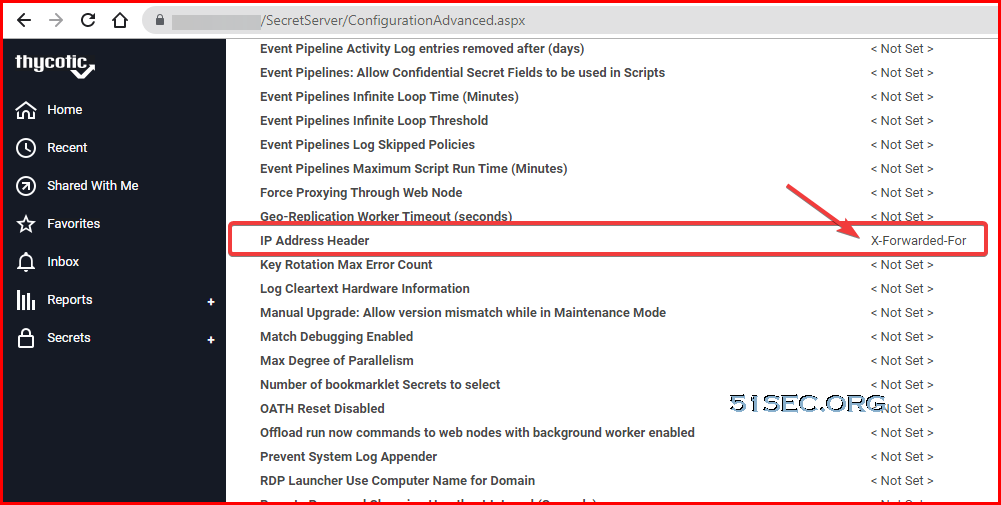
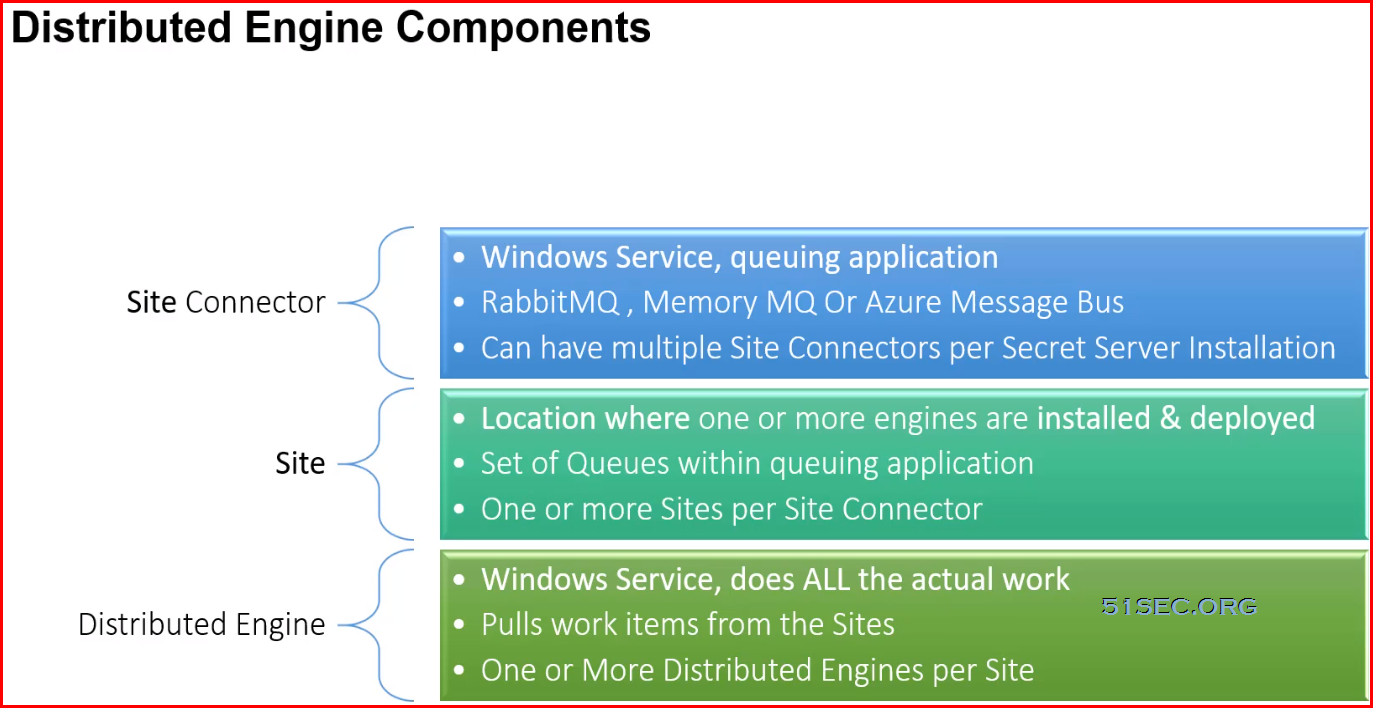
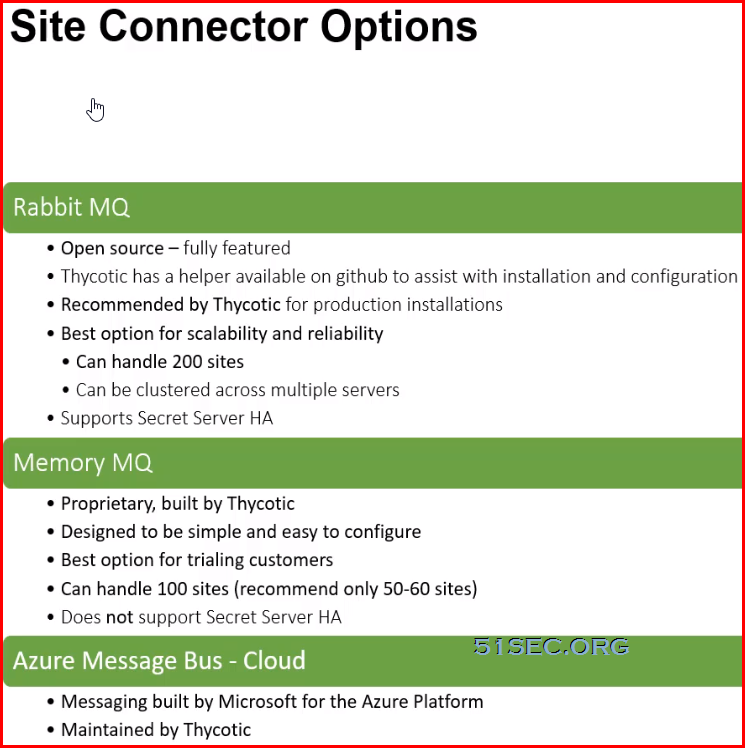
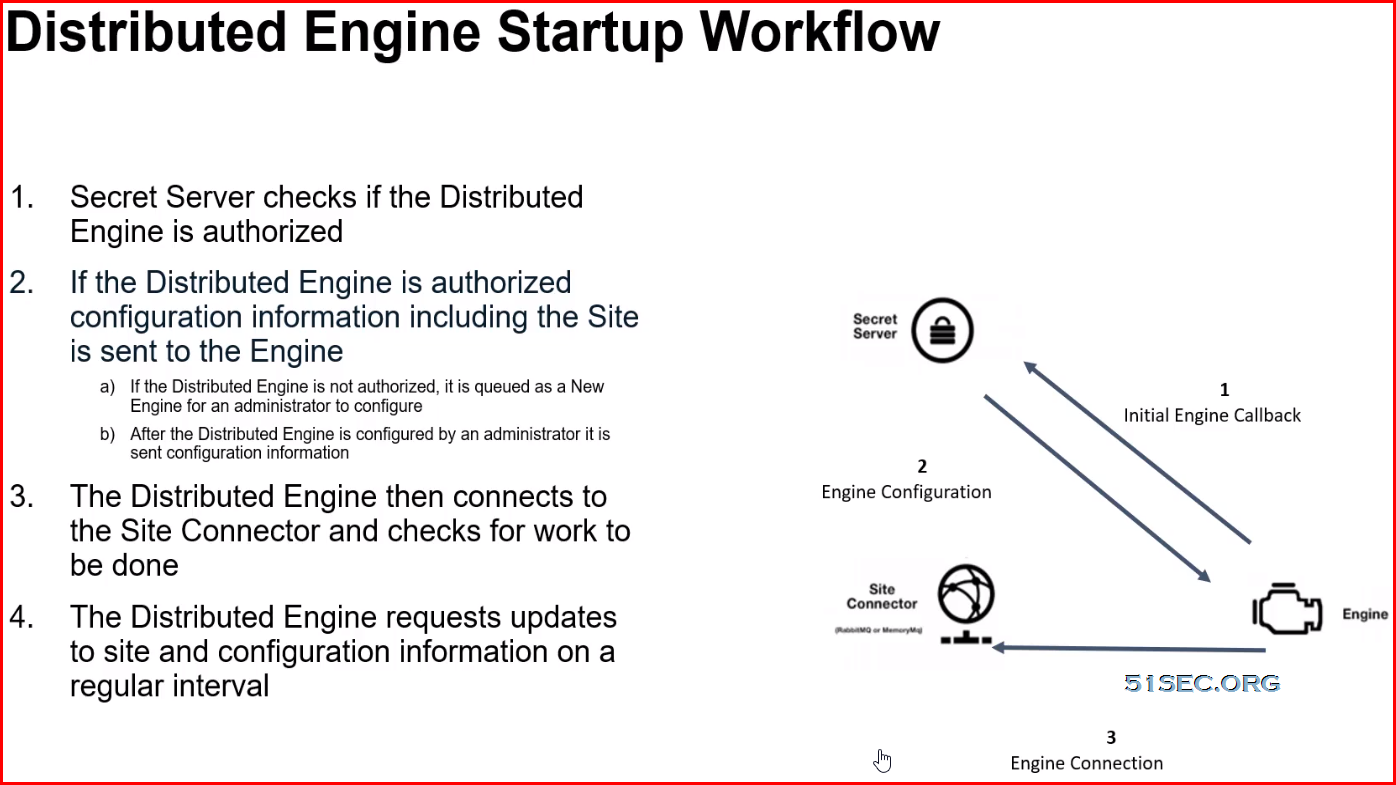
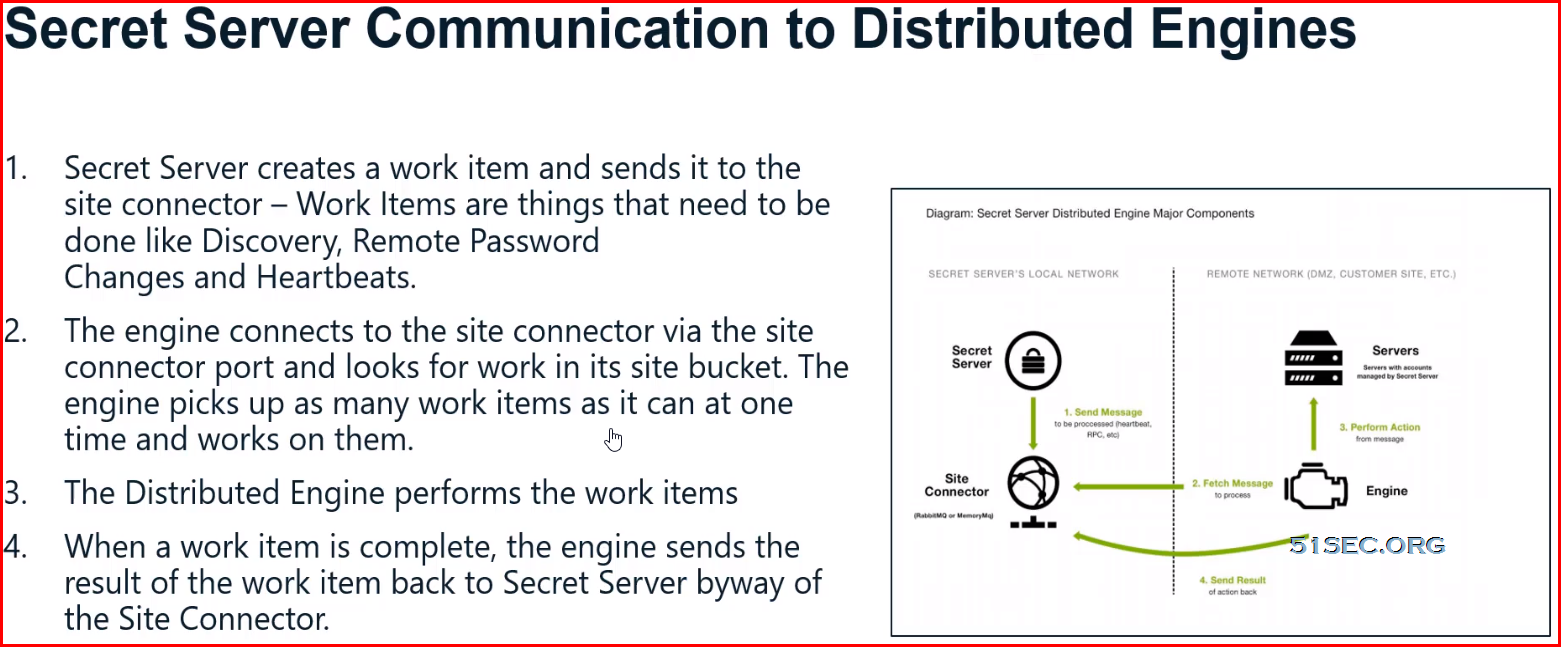







No comments:
Post a Comment